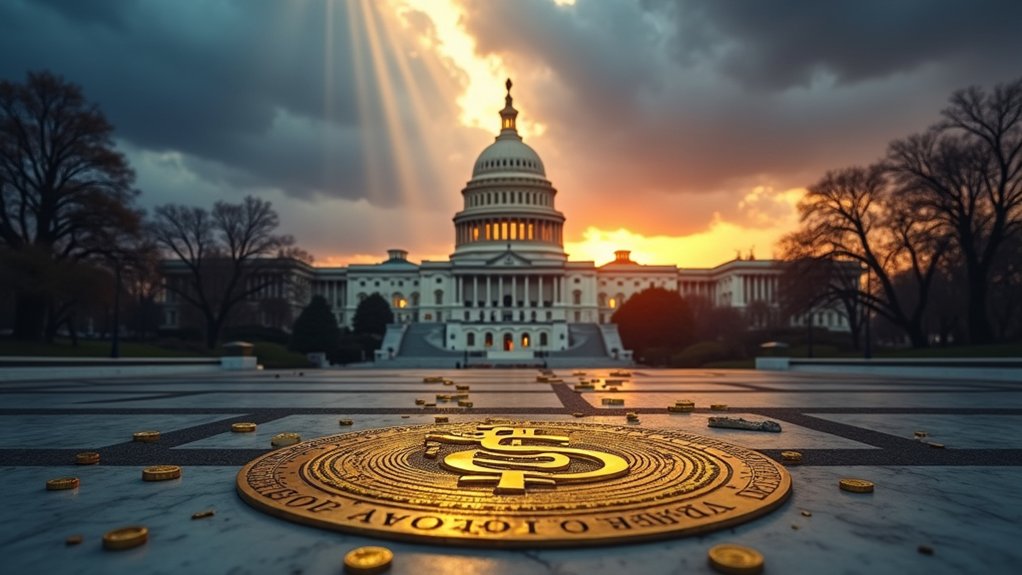Congress delivered a decisive blow to cryptocurrency regulation this week, striking down a controversial IRS rule that would have classified decentralized finance (DeFi) platforms as brokers. The bipartisan pushback culminated in a House vote of 292-132 on March 11, following the Senate’s earlier 70-27 approval on March 4.
Let’s be clear: This wasn’t just a narrow win. It was a smackdown. A whopping 76 House Democrats joined Republicans to reject the rule, while 17 Senate Democrats crossed party lines. Politicians actually agreed on something for once. Shocking, right?
This rare political unity proves Washington can still deliver a knockout punch when crypto freedom is on the line.
The rule, finalized in December 2024, would have forced DeFi platforms to implement know-your-customer protocols and report transactions to the IRS starting January 2027. Crypto folks hated it. The Blockchain Association, Coinbase, and venture firm a16z all celebrated the repeal, calling it a victory for innovation.
White House AI and crypto czar David Sacks didn’t mince words, labeling the regulation an “11th hour attack” by the Biden administration. He promised to recommend that President Trump sign the resolution when it hits his desk.
Not everyone’s thrilled about the economic impact. The Joint Committee on Taxation estimates the repeal will reduce federal revenue by $3.9 billion, while the Congressional Budget Office projects a $4.5 billion increase to the federal deficit through 2035. Critics worry it creates a tax evasion loophole. Supporters say that’s nonsense – the rule would have killed innovation. Representative Lloyd Doggett and other Democrats expressed concerns about potentially creating loopholes for money laundering.
The Congressional Review Act gave lawmakers the power to overturn this regulation, and they used it with gusto. Rep. Mike Carey led the charge with his resolution of disapproval under the CRA. Once Trump signs it, the IRS can’t issue substantially similar rules in the future. Game over.
The crypto industry is now waiting for regulatory clarity from Congress. This repeal might signal a broader shift toward crypto-friendly policies. Many industry advocates argue that DeFi’s promise of giving users complete control over their assets without intermediaries should not be stifled by excessive regulation. For now, DeFi developers can breathe easier. They won this round. The taxman will have to find another way to get his cut.





